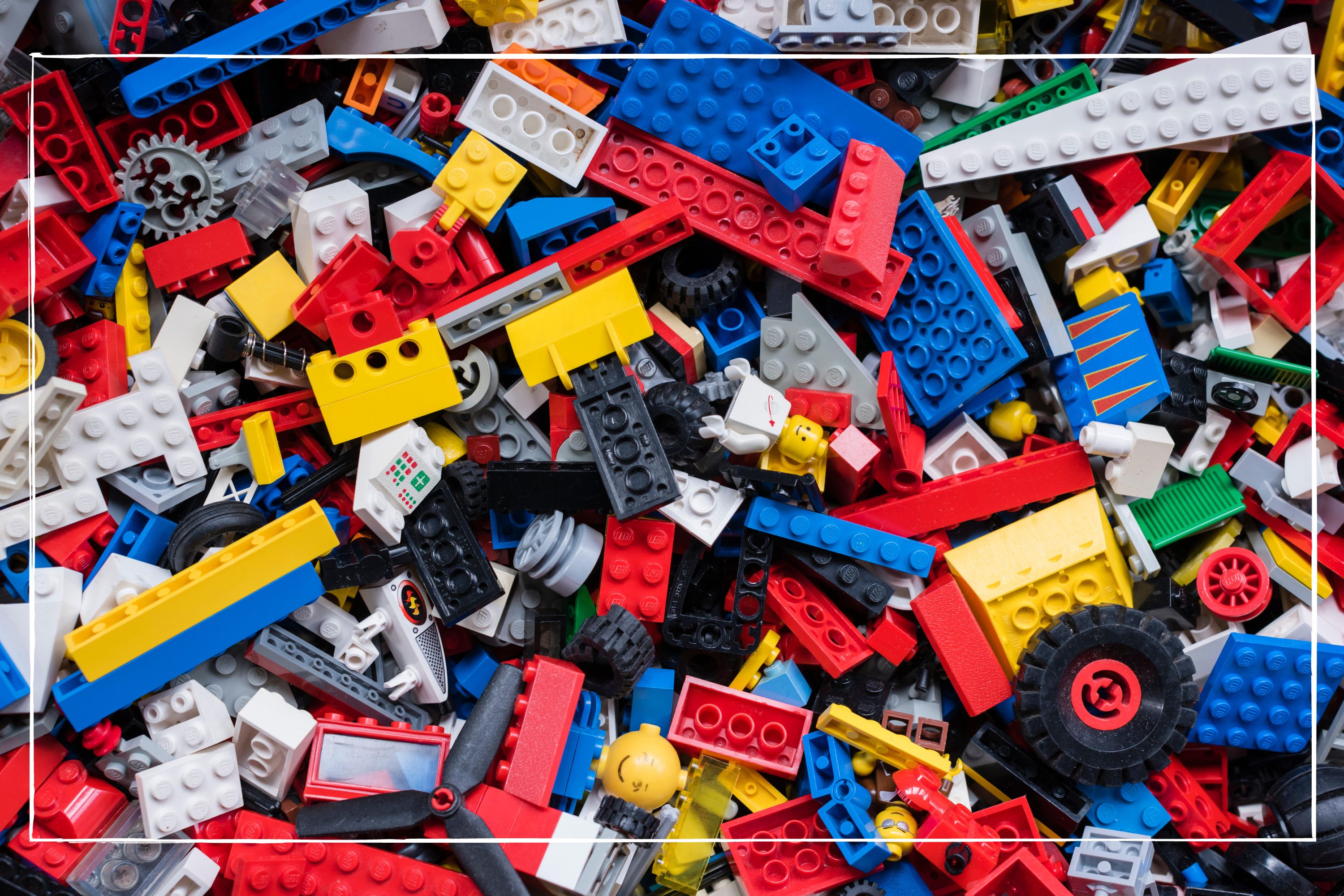12 reasons why LEGO is great for kids' development, according to the experts (and we totally agree)
More than just blocks, LEGO builds kids up in so many ways – discover its impact on children's development

LEGO is great for children’s development on so many levels - from pincer grip to hand-eye coordination and social confidence, plus its price point is accessible across the board, and - let's be honest - it really is fun for all ages, and kinda nostalgic too.
Always high up on the year's top toys list it’s really easy to see why - LEGO keeps kids engaged. When LEGO was invented, it was aimed at children, but now with all the epic brand licensing, you’re also likely to buy it for a fun night in with friends over wine. For parents though, sometimes they’re faced with the LEGO vs Playmobil dilemma - but choices are made, regrets are aired and toys are put up on Vinted, as is the circle of charity shop life.
Here at GoodtoKnow we take parent research very seriously, we know that parents are time-poor so we like to answer all the questions on potential purchases before you've had a chance to think of them. So whether you need to know what this year's top toys are or you're weighing up Nintendo Switch Vs OLED, comparing LEGO Vs Playmobil, or just interested in the best Amazon Prime day toy deals - we've got you covered.
In this article we investigate and speak to a play expert on why LEGO is a brilliant buy to tap into your kids' development.
Why is LEGO great for development?
Playing with LEGO develops and enhances fine motor skills (the ability to make movements using the small muscles in our hands and wrists. We rely on these skills to do key tasks in school; the very act of building up on bricks allows a child to perform more intricate tasks with greater ease over time. Plus building something that 'doesn't last forever' hones the art of persistence. Lego provides the perfect platform for developing this key character trait that will serve them well all throughout their lives.
Play really is a child’s work and it’s never done. Children have a natural curiosity and love to explore and problem-solve, and Dr Gina Gomez de la Cuesta agrees. Here the Clinical Psychologist and Founder of Play Included® tells us; “Play is the way that children can make sense of their experiences, their feelings, and the world around them.” And playing with LEGO bricks encourages just this.

According to studies, LEGO - and other construction style toys like Mecchano - can boost STEM (Science Technology Engineering and Mathematics) achievement. Strong spatial skills are important for achievement in STEM fields. From a young age, spatial skills are linked with mathematical competence (Kahl et al 2021), and by adolescence, spatial skills are predictive of a child’s long-term outcomes in STEM.
Parenting advice, hot topics, best buys and family finance tips delivered straight to your inbox.
Other benefits include;
- Improved eye/hand coordination
- Enhanced fine motor skills
- Pincer grip development
- Persistence and patience
- Problem solving skills
- Achieving a sense of accomplishment
- Learning how to plan socially
- Teamwork when playing with others
- Enhanced creativity
- Improved focus and concentration
- Self-confidence
- Story telling
Dr Gina tells us; "Play is the way that children can make sense of their experiences, their feelings, and the world around them. With open-ended play – also known as child-led play – there is no right or wrong way to play, the most important thing is for the children to have fun together. This can support the development of children’s creativity, problem-solving and communication skills."
According to research, 90% of a child’s brain develops by age five and it's well believed that the more the brain is used, the better it develops and the stronger the child’s mental focus becomes. LEGO provides a way to mastering many other kind of emerging skills, such as problem solving, spatial skills and understanding semi-complex tasks.
"Playing collaboratively with LEGO bricks provides children with the perfect opportunity to develop relationships with others."
Although the primary purpose of play is to have fun, research published by the LEGO Foundation also suggests that children learn best through play, highlighting the interconnected nature of learning. And Dr Gina agrees, "a fundamental aspect of play is that it enables children to have agency over their own learning journey. The stimulation and learning that comes from play is essential to help develop language, social and cognitive skills. It also encourages children share, negotiate and resolve conflicts, and develop their self-advocacy skills."
Mum-of-three, Jen tells us; "My son is five and recently started LEGO therapy in school to help build his social skills and confidence to use his voice. And I have seen such a difference in him, it's only been three weeks."
Dr Gina explains; "Playing collaboratively with LEGO bricks provides children with the perfect opportunity to develop relationships with others. For example, when children build LEGO models together following the instructions, they can take on different roles such as the LEGO brick ‘Supplier’ and the model ‘Builder’."
This gives them the chance to collaborate, communicate, negotiate and problem-solve with each other. She adds; "Enjoying playful experiences with other children, who share the same passion for LEGO model building, also helps to create a sense of belonging, which improves children’s social and emotional wellbeing."
Using three-dimensional objects also enables young and inquisitive minds to plan ahead and make the necessary alterations so the pieces fit together as intended.
What is the educational value of LEGO?
The value is literally unlimited when it comes to focus, creativity, problem-solving, teamwork, and persistence – LEGO kits can help students develop important skills that they will use throughout their lives.
Dr Gina explains to us that ultimately, with open-ended play – also known as child-led play – there is no right or wrong way to play; "the most important thing is for the children to have fun together. This can support the development of children’s creativity, problem-solving and communication skills."
Whether it be through child-led LEGO play or another playful activity, when children come together to enjoy a shared passion, it creates a safe space where they are able to interact with each other and freely make mistakes without any real consequences. Facilitating playful opportunities like these are, therefore, essential to helping all children reach their full potential.
So, if you needed any other reason to go and spend on that huge bucket of LEGO from Facebook sells or that brand new set that just landed on Amazon, know that you are doing the kid in your life a huge service.
Featured expert

Gina founded Bricks for Autism (now Play Included) in 2018, supported by the Cambridge Social Ventures incubator programme, University of Cambridge. Having studied LEGO based therapy for her PhD at Cambridge University Autism Research Centre, Gina is co-author of the LEGO based therapy manual. Gina completed her Doctorate in Clinical Psychology at the University of East Anglia and has done PGCE teacher training.
For more on what to do with kids to help development we have fantastic facts for kids to blow their mind, amazing riddles for kids and not forgetting our when was LEGO invented piece to really answer all their questions.
Stephanie has been a journalist since 2008, she is a true dynamo in the world of women's lifestyle and family content. From child development and psychology to delicious recipes, interior inspiration, and fun-packed kids' activities, she covers it all with flair. Whether it's the emotional journey of matrescence, the mental juggling act of being the default parent, or breaking the cycle of parenting patterns, Stephanie knows it inside out backed by her studies in child psychology. Stephanie lives in Kent with her husband and son, Ted. Just keeping on top of school emails/fundraisers/non-uniform days/packed lunches is her second full-time job.